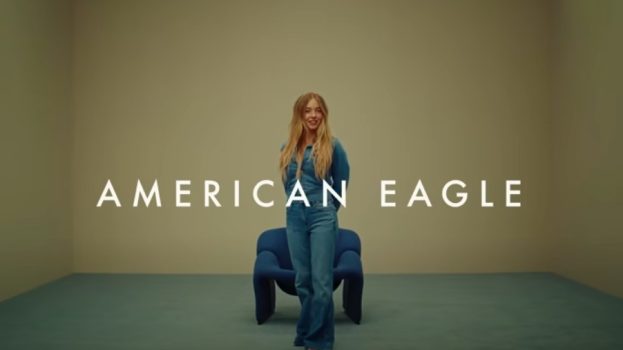It was bound to happen. Millennial madness, that is. As we approach the turn of the century, the temptation to tie the marketing of one’s product or service to the year 2000, the future, the millennium, will be too great to resist.
While there’s no doubt the idea of the millennium and the attendant promise that it holds is incredibly powerful, advertising creatives say as an advertising concept it’s best used sparingly – if at all.
Indeed, creatives are counseling clients not to build campaigns around the millennium theme unless the idea or new product is big – big enough to be able to tie into an event that happens only once in a millennium.
Linking to the millennium for no valid reason will not enhance a brand, says Karen Howe, creative director of Toronto’s Due North Communications, and in fact may work against it because consumers are already starting to tune out all the hype they’re seeing in the mainstream media.
‘It’s getting flogged to death,’ says Howe. ‘There was a certain amount of mystique 30 years ago with the movie 2001 A Space Odyssey, but now that we’re on the precipice, big deal.
‘It’s become so hackneyed, it’s like oral wallpaper. It says to me you haven’t got a bigger story to tell if you’re hiding behind the millennium thing.’
Alan Gee, chairman and executive creative director of Gee Jeffery & Partners, concurs, saying that using the latest millennial buzzword in an ad is no substitute for a brand’s core attributes and positioning.
‘There are many words in marketing that have had seemingly magical attributes to them. I remember the word ‘quartz’ was one of them. And ‘natural’ is another word that’s been overused.
‘The more a buzzword is used, the more it becomes commonplace and ordinary. The danger is that it has become so overused that is no longer noted anymore, which is a shame because in some cases it has a value.’
Peter Drummond, general manager of Geyser, the branding arm of Montreal-based Cossette Communication-Marketing, says he’s not recommending to clients that they try to link their brand with the new millennium, unless it’s strictly for short-term promotional or tactical reasons.
‘If everybody is screaming ‘millennium’, then Company A or Brand B aren’t able to be differentiated in consumers’ minds. If there’s no differentiation, everybody is going to shut it out.
‘If you look at big brands out there – Coke, ibm, McDonald’s – obviously they have to talk about it from a pr perspective, that they’re year 2000 compliant, but they don’t appear to be linking any communication or brand strategies to the millennium.’
Steve Conover, senior vice-president and creative director of Ambrose Carr Linton Carroll in Toronto, says he’s concerned about the gratuitous use of new millennium concepts creeping into advertising.
He says the aclc staff is already wagering how often the song ‘1999’ by the artist formerly known as Prince will be used in ads this year.
Where there is a great opportunity for advertisers, Conover says, is in spoofing the new millennium or Y2K.
‘If you could do something outrageously funny that plays upon it – because it’s one of those thing everyone is so aware of and is so prevalent in the media – that if you could spoof it in a convincing way, you’ve got a winner.’
Peter Lanyon, chairman and ceo of Vancouver’s Lanyon Phillips Communications, says there’s a real threat of over-promise associated with the millennium, so unless a company is reinventing itself, using the millennium as a marketing device could sound overblown.
Lanyon does perceive a change in the public mood as the new millennium approaches – something he calls millennial thinking – whereby people have a sense of expectation or feel they should be doing something around the new millennium, and that mood, presumably, is something marketers can tap into.
‘I’ve noticed all these films, such as Meet Joe Black and City of Angels, coming out about the afterlife. It’s almost an apocalyptic thing – that something magical is going to happen in 2000.’
While Lanyon says he doesn’t expect the new millennium’s going to have the impact everyone seems to think it will, he says it’s definitely having ‘a psychological effect.’
Sidebar: M&Ms, Cheerios on bandwagon
North American marketers have already begun the countdown to the year 2000 with a bevy of millennium promotions and tie-ins. And the activity is expected to escalate as the end of the year draws nearer.
One of the first major marketers to succumb to millennial fever was U.S.-based confectioner Mars, which last year trademarked its ever-popular M&Ms as the ‘Official Candy of the New Millennium.’
In a series of clever television spots, animated M&Ms expound on the fact that MM translates to 2000 in Roman numerals. ‘It’s like it was fate or something,’ they crow happily.
Here at home, General Mills Canada of Mississauga, Ont. is one of the latest companies to jump on the millennium bandwagon.
Earlier this month, it launched a major millennium-themed promotion, encompassing its Cheerios cereal brands, in which foil packages of Millennios – Cheerios shaped like the numbers two and zero – have been placed inside 2,000 boxes of Cheerios. Consumers who find the Millennios have a chance to win a Caribbean cruise.
And for consumers who don’t want to buy up all the boxes of Cheerios on their grocers’ shelves, they can try their luck at the new Mega-Millions 2000 instant lottery, introduced last month by Loto-Quebec.
Even the Girl Guides of Canada have gotten into the millennium act. They announced last week their interest in finding a corporate sponsor for their year 2000 cookie campaign. PS






















